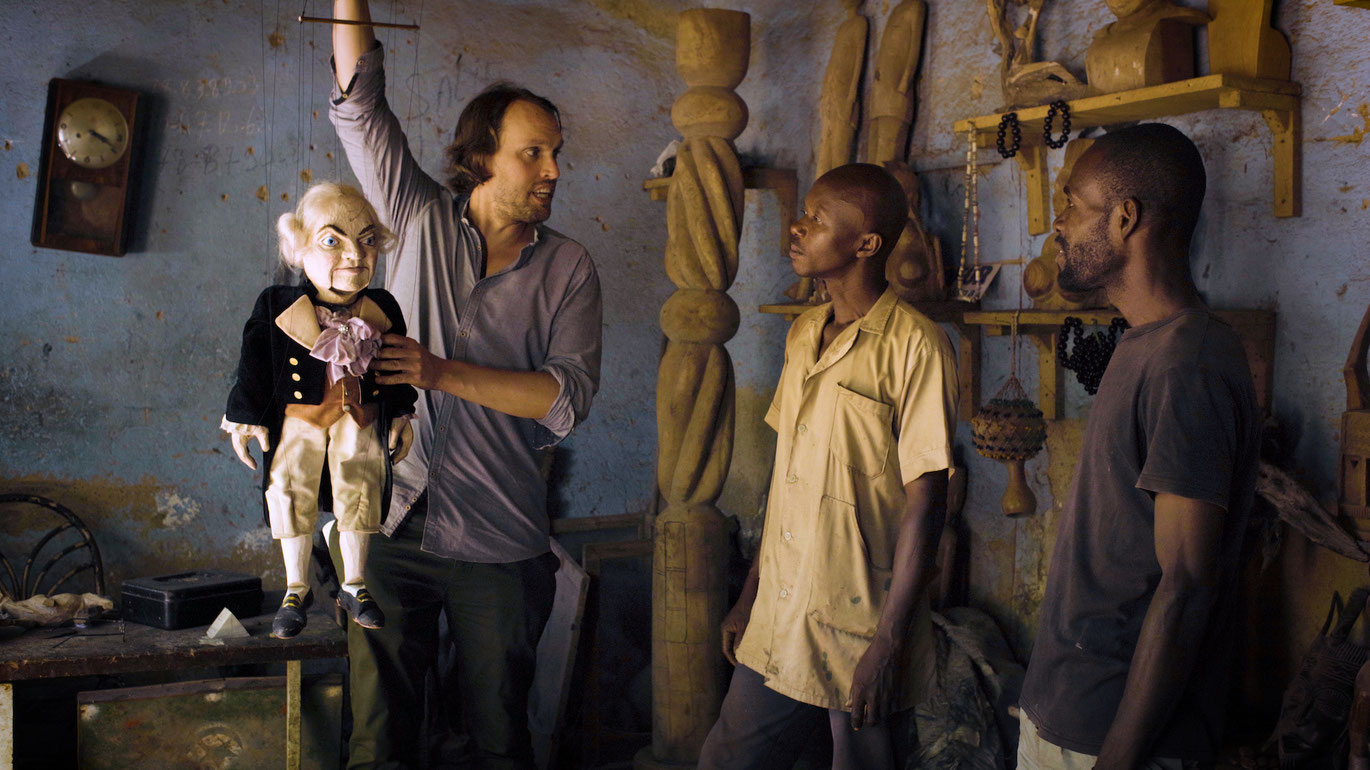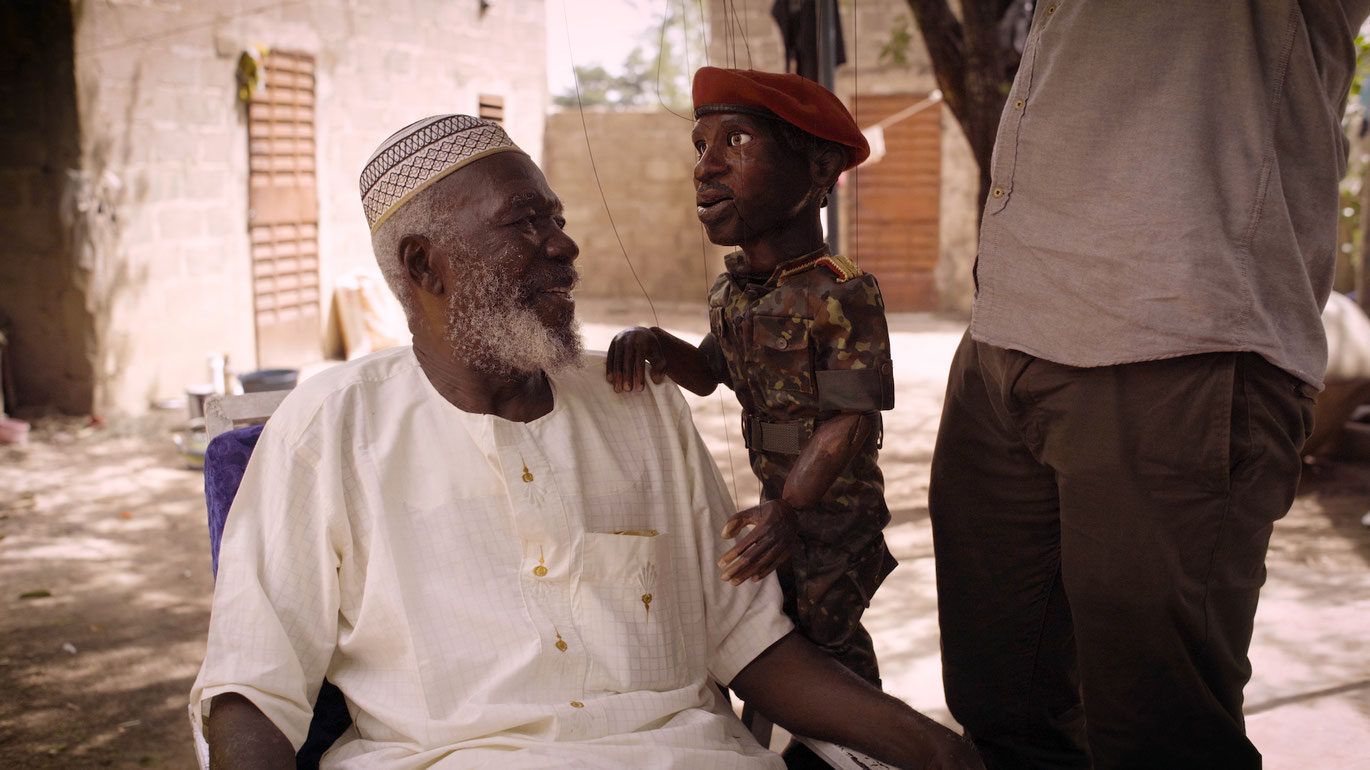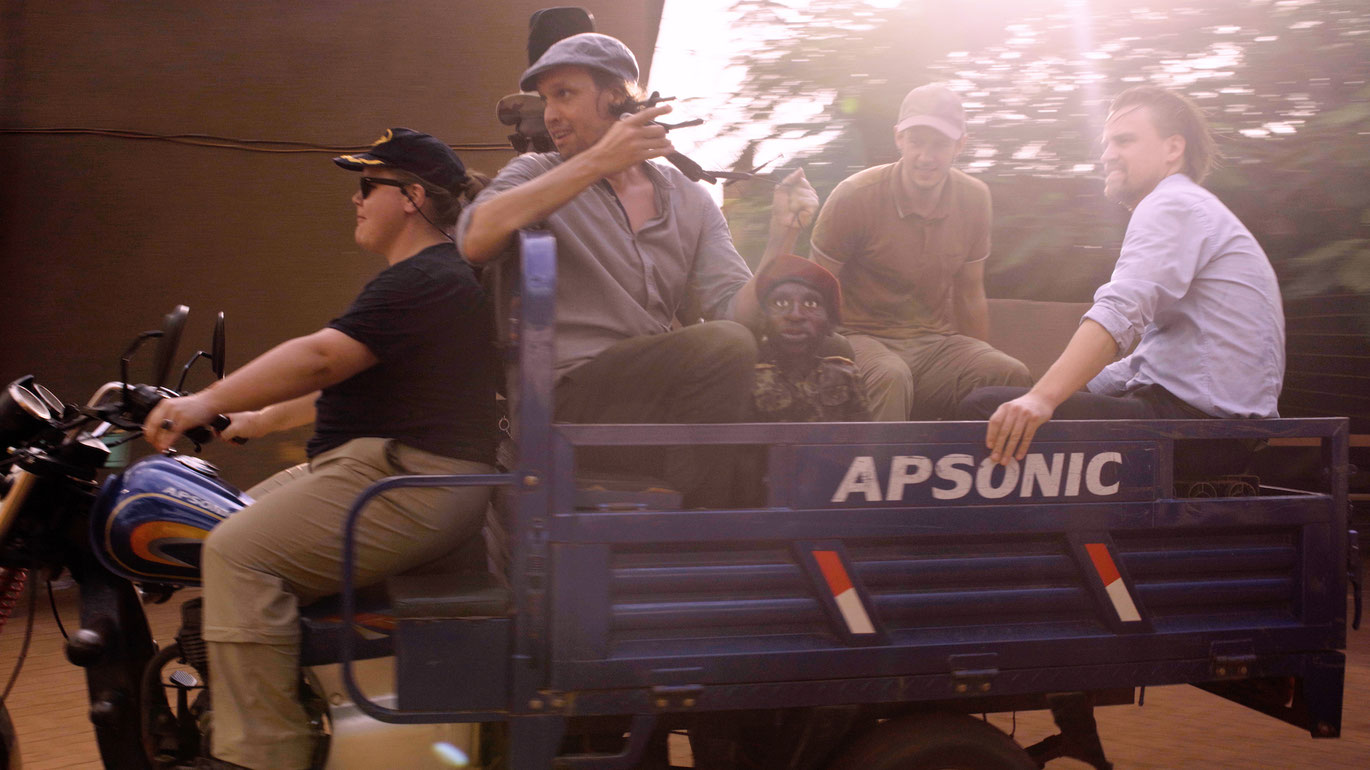The Revolution Devours Its Children!
2014: A director travels with her ensemble to Burkina Faso where they get caught in a revolution. She plunges into protests against the autocratic long-term president and falls into the delusion of staging the political turmoil herself. (production note)
At the heart of the story is the uprising in Burkina Faso in 2014. When I rehearsed at the theatre festival Les Récréâtrales, I witnessed this utopian event. I believe that we can only tell history if we give our own story or perspective. The film questions the Western export of ideas and values "to Africa" and turns this perspective around. Christoph Schlingensief has expressed his special relationship to Burkina Faso with the idea of the opera village. He coined the credo "to learn from Africa". We ask: can we learn revolution? The film shows the main character's longing for political utopias and at the same time her delusion of not wanting to let go of the threads of world history, the ignominy of not seeing herself in the centre of events. For me, this describes a painful contradiction: if world history is written outside the Eurocentric space of thought, can we bear it? (Director's Statement)
Preceding the feature film, Die Revolution frisst ihre Kinder! was an eponymous theater production, staged by director Jan-Christoph Gockel at the Schauspielhaus Graz in 2018, which already integrated scenes from the film shoot in Burkina Faso. In the version produced specifically for the screen, a director (Julia Gräfner) plans a performance of Georg Büchner’s revolutionary drama Danton’s Tod in Ouagadougou, with marionettes as actors. Through the transfer to Africa, Gockel conveys the main idea of the revolutionary drama, namely, the erosion and cannibalization of reformist ideas, within a postcolonial discourse. He questions the extent to which Büchner’s play (including his enlightenment postulate) can be exported from Europe to a country like Burkina Faso, which is ruled by an autocratic dictator. And why this patronizing gesture is bound to fail.
The Grazer Ensemble travels to Ouagadougou and brings the Burkinabè people the recipe for revolution. The story of Danton and his adversary Robespierre should mirror the two genuine African revolutionary heroes Blaise Compaoré and Thomas Sankara. The latter lost the struggle for power and was murdered in a coup in 1987.
In mockumentary style, Die Revolution frisst ihre Kinder! plays with imagined reality at several levels and fluctuates in a deliberately ambiguous way between fake (director, actors, plot) and real documentary (street scenes of Ouagadougou, interviews with members of the Sankara family and local artists). When actual demonstrations break out on site, the director credits everything to herself and her art. Gockel reveals her as a representative of a neocolonial perspective, which is based on an unacknowledged, hegemonic self-perception.
(Margarete Affenzeller)
Translation: Lisa Rosenblatt
Die Revolution frisst ihre Kinder!
2020
Burkina Faso, Austria
73 min
feature fiction, hybrid
German, French, Mòoré
English, German, french



